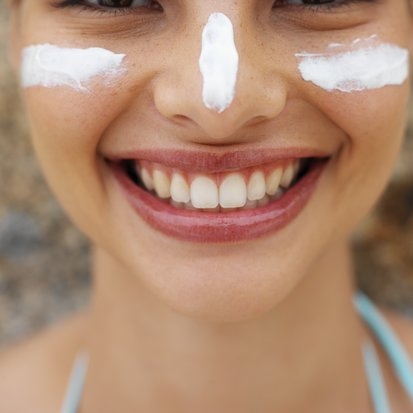
A new study has revealed that the sunscreen tourists commonly use is actually damaging the coral reefs in different parts of the world.
According to the researchers reducing the use of sunscreen when swimming in oceans can actually have a huge impact on the conservation of corals, CNET reported.
Craig Downs of the Haereticus Environmental Laboratory in Virginia explained that sunscreen, also known as sunblock, protects the skin by filtering the ultraviolet radiation from the sun. This is why people were always told to wear sunscreen especially when going to the beach.
According to Downs, the lotion's UV-filtering properties are provided by the compound oxybenzone. Although this chemical can save people's skin from the harsh effects of the sun, it is considered toxic to corals.
Downs and his team made this discovery by studying the coral reefs in Hawaii, Israel and the U.S. BBy taking samples from the regions, they learned that the areas with the highest population of tourists also had the largest concentrations of oxybenzone in the water.
In addition, through experiments, the researchers learned that can instantly kill living corals and even damage their DNA. These can then prevent young corals from developing properly.
They also discovered that this chemical can contribute to coral bleaching, which is the loss of corals' pigmentation due to the death or disappearance of algae-like protozoa living inside them.
Following the results of the study, Downs noted that banning or even minimizing the use of sunscreen or products that carry oxybenzone can have a huge effect in the restoration of coral reefs.
"We have lost at least 80 percent of the coral reefs in the Caribbean," he said in a statement. "Any small effort to reduce oxybenzone pollution could mean that a coral reef survives a long, hot summer, or that a degraded area recovers."
"Everyone wants to build coral nurseries for reef restoration, but this will achieve little if the factors that originally killed off the reef remain or intensify in the environment," he added.
Given the effects of oxybenzone on corals, the researchers strongly suggest turning to other methods in protecting the skin from UV radiation.
"Wear rash guards or scuba wetsuits and skip all the hygienic products when you go diving," John Fauth, a professor from the University of California and member of the research team said. "If we could do it for a week at a time, people can certainly forgo it for a few hours to help protect these reefs for our children and their children to see."
The study conducted by the researchers was published on October 20 in the scientific journal Archives of Environmental Contamination and Toxicology.














